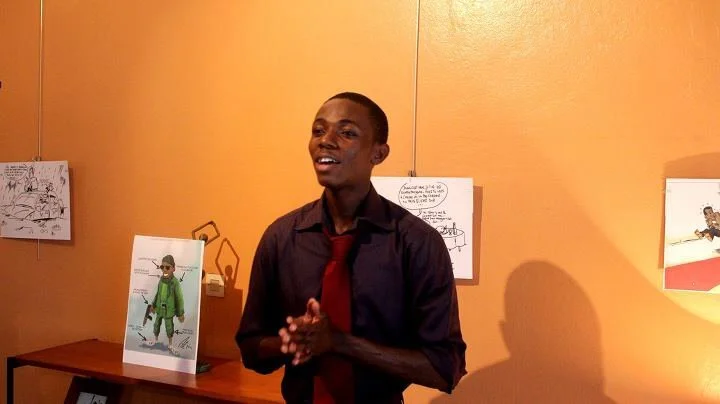When Regis Umugiraneza graduated from college in Rwanda he didn’t know what to do. Then he discovered that sweet potatoes, a popular harvest in his country, could be the answer.
Umugiraneza, co-founder and chief executive officer of Carl Group, is one of the young African entrepreneurs selected as youth speakers at the 2019 African Economic Conference underway in the Egyptian city of Sharm El Sheikh.
The three-day conference, hosted by the African Development Bank, in partnership with the United Nations Development Program (UNDP) and the United Nations Economic Commission for Africa (UNECA), is being held under the theme: ‘Jobs, entrepreneurship and capacity development for African youth”.
“Four of us, young graduates, who had absolutely nothing, started our own business. We launched a business to produce doughnuts from sweet potatoes. We even didn’t have business management skills,” he said during a panel discussion on the second day of the conference.
The session, exploring how to create a business ecosystem that fosters entrepreneurship for the youth, heard how Umugiraneza and his partners built the business from scratch to a growing firm now worth more than $200,000 with a staff of 24 people.
“As the business grows, I’ll need more skills. I don’t consider myself a CEO. I want to be a CEO when my firm hires 100 people,” he said.
Two Egyptian entrepreneurs, Khaled Hassan and Sara Abdelrahman, underscored the importance of a conducive business environment to pave the way for startups.
Abdelrahman, who launched her social enterprise a few years ago, said she nurtured her business idea after her friend had an accident.
“This friend needed someone to take care of her. Then I thought of something to help her and all the disabled. I don’t look for profit as I’m only concerned about providing a social service to the disabled,” she said.
While acknowledging that Egypt’s business ecosystem favours entrepreneurship, Hassan called for more measures to improve the macroeconomic landscape in support of businesses, especially startups. “There should be more integration of the ecosystem in Egypt”, he added.
Leading the discussions, Raymond Gilpin, Chief Economist at UNDP, emphasized the facilitating role of ecosystems, which comprise factors such as governments and administrative systems, infrastructure and other socio-economic resources, in closing the youth skills gap in Africa.
“The business ecosystem as a whole, comprising the macroeconomic and microeconomic factors, differs from country to country and should be outlined clearly for the well-tapping of the continent’s potential,” Gilpin said.
There should be a long-term strategy to link education to the continent’s development needs in the decades to come. “The gap is closing, but not fast enough,” Gilpin added.

